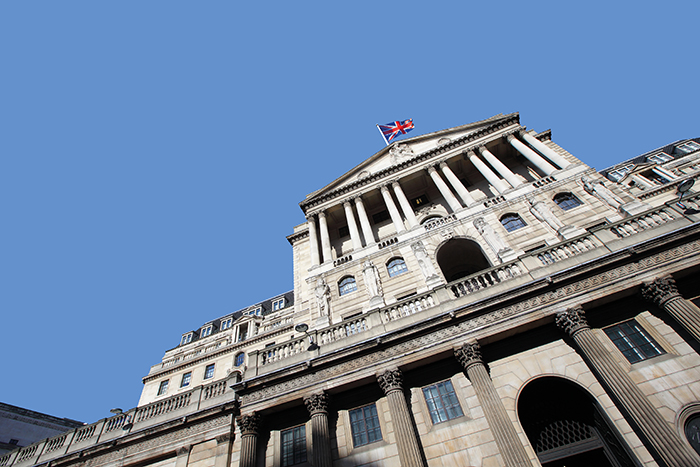
Brokers and markets will hope that the Bank of England’s 50 basis points base rate rise to 5% is a sign that Threadneedle Street is beginning to get a grip on the UK’s stubborn inflation.
The Bank’s 13th base rate rise in a row, the highest level in 15 years, is a response to inflation yesterday coming in at 8.7% in the year to May, unchanged from the previous month. Markets had expected a 30bps fall.
A further worry was that core inflation — which includes housing costs, but excludes energy, food, alcohol and tobacco — rose by 6.5%, up from 6.2% in April, hitting its highest rate since 1992.
The rate-setting Monetary Policy Committee says in minutes that at its previous May meeting: “The market-implied path for Bank rate averaged just over 4% over the next three years. Since then, gilt yields have risen materially, particularly at shorter maturities, now suggesting a path for Bank rate that averages around 5½%.
“Mortgage rates have also risen notably. The sterling effective exchange rate has appreciated further.”
By contrast, in the eurozone, consumer price index inflation fell to 6.1% in May, down from 7% in April. While in the US inflation dropped to 4%, from 4.9% in April.
In the UK, the average two-year fixed-rate mortgage rose again to 6.19% today – at the start of the week the home loan term topped 6% for the first time since the aftermath of former Chancellor Kwasi Kwarteng’s September mini-Budget.
The Monetary Policy Committee points out it expects inflation to fall “significantly further during the course of the year” due to reductions in energy prices and food costs.
The Committee says that it will closely watch inflationary pressures in the economy, particularly the tightness of the labour market, wage growth and rising services prices.
It adds: “If there were to be evidence of more persistent pressures, then further tightening in monetary policy would be required.”
However, some brokers wonder if the Bank’s one-club rate policy may tip the economy into recession.
Lodestone managing director Craig Fish says: “As expected, a 50bps increase is a clear signal that the Bank will continue along this rather worrying path. With the Monetary Policy Committee votes split at 7/2 [in favour of the 50bps hike], it seems that more increases may well be on the cards.
“I suspect that we may well see a raft of lenders quickly increasing their rates now, which is going to have a significant impact on borrowers’ ability to pay their mortgages, and as such it looks like property prices may well start to decrease more quickly.”
EHF Mortgages founder Justin Moy points out: “The increase announced this lunchtime of 50bps will do little to dampen the inflation figures for the UK. In fact, it only increases costs for businesses, who pass on those extra overheads to consumers through higher prices.
More mortgage rate increases will eventually slide us into recession, which may be the plan if there is one in place.
“Time for the government to take clear action on its own issues and prices, as this is not a global problem anymore. The base rate has become the stick to beat the economy with, not to improve it.”
Other property professionals forecast higher lender rates, with growth only evident in specific regions.
Barrows and Forrester managing director James Forrester says: “This will do nothing to revitalise what has become a rather weary-looking property market in recent months and is sure to dampen buyer demand as lenders pass on this increase in the form of higher mortgage rates.”
MortgageShop.com financial adviser Gary Bush adds: “The inflation figure is to blame for the 50bps increase in the Bank of England base rate today, well that and the Bank being too cautious back in December 2021 when the increases should have been whole numbers like 1% to 2% to truly hit the early signs of inflation.
“The London and South East property markets will slow to a grinding halt now, I think. Any growth will be in the areas of the UK that still have cost-effective properties of small portions to incomes, such as the North East and the North West.”
Chancellor Jeremy Hunt says there is “no alternative” to battling rising prices without raising interest rates.
However, some brokers say the government must look towards other measures to cool the economy.
Lawson Financial broker Michelle Lawson says: “The next decision is due 3 August. If inflation remains unchanged between now and then we could see this [interest rates] rising further. Clearly what is being done isn’t working so at what point does this stop and do the Bank of England and government think of a change of tack?”



